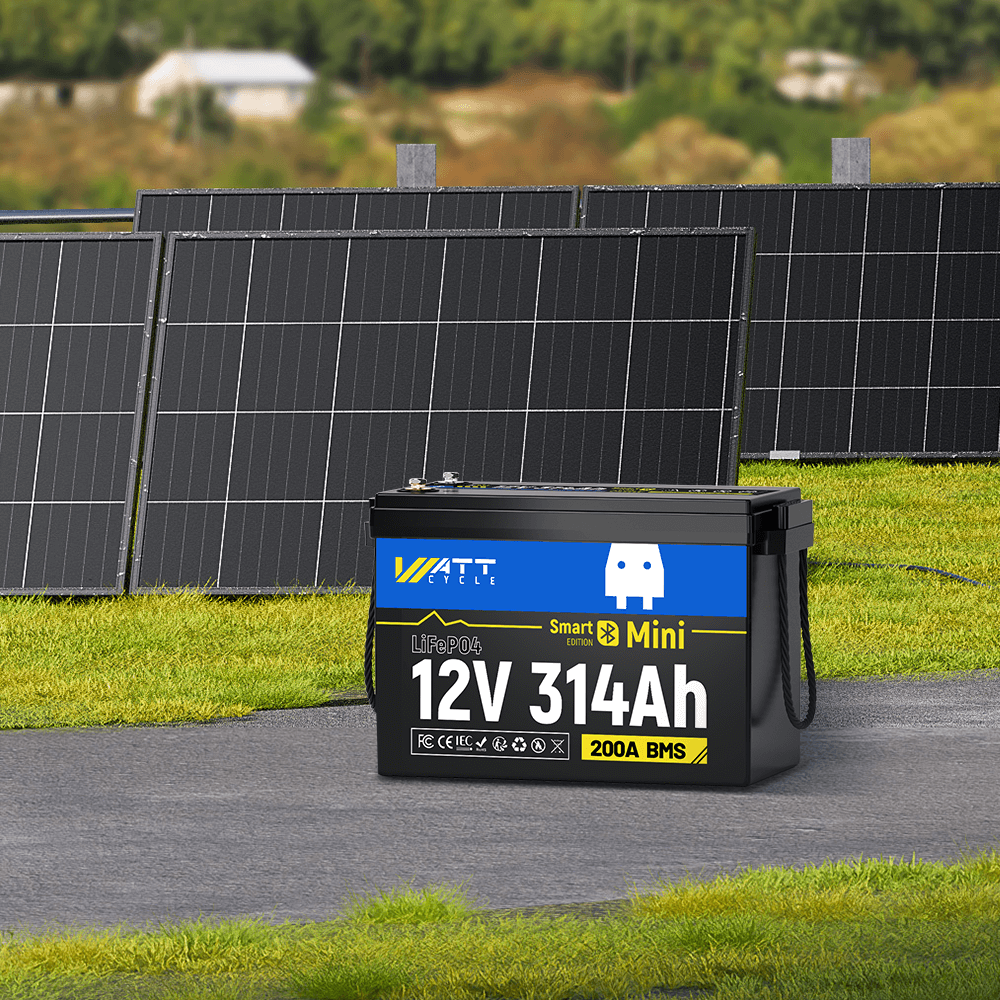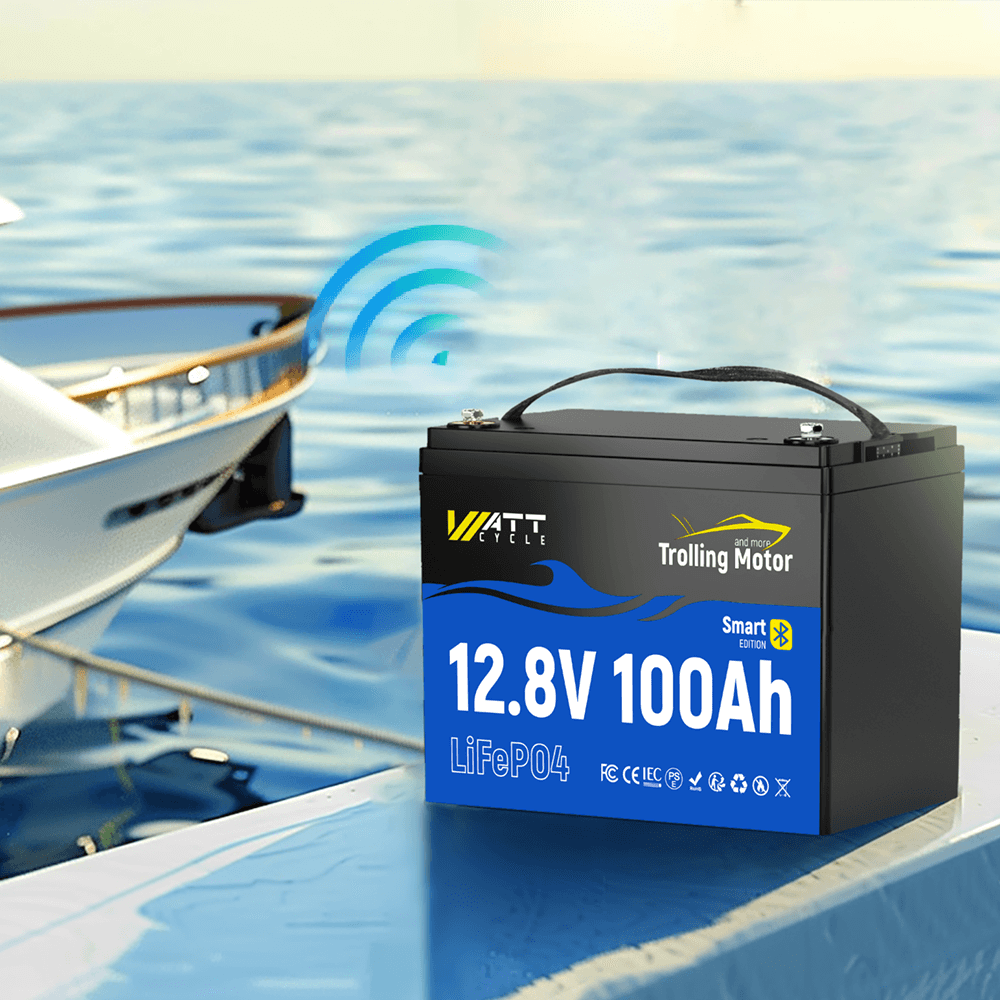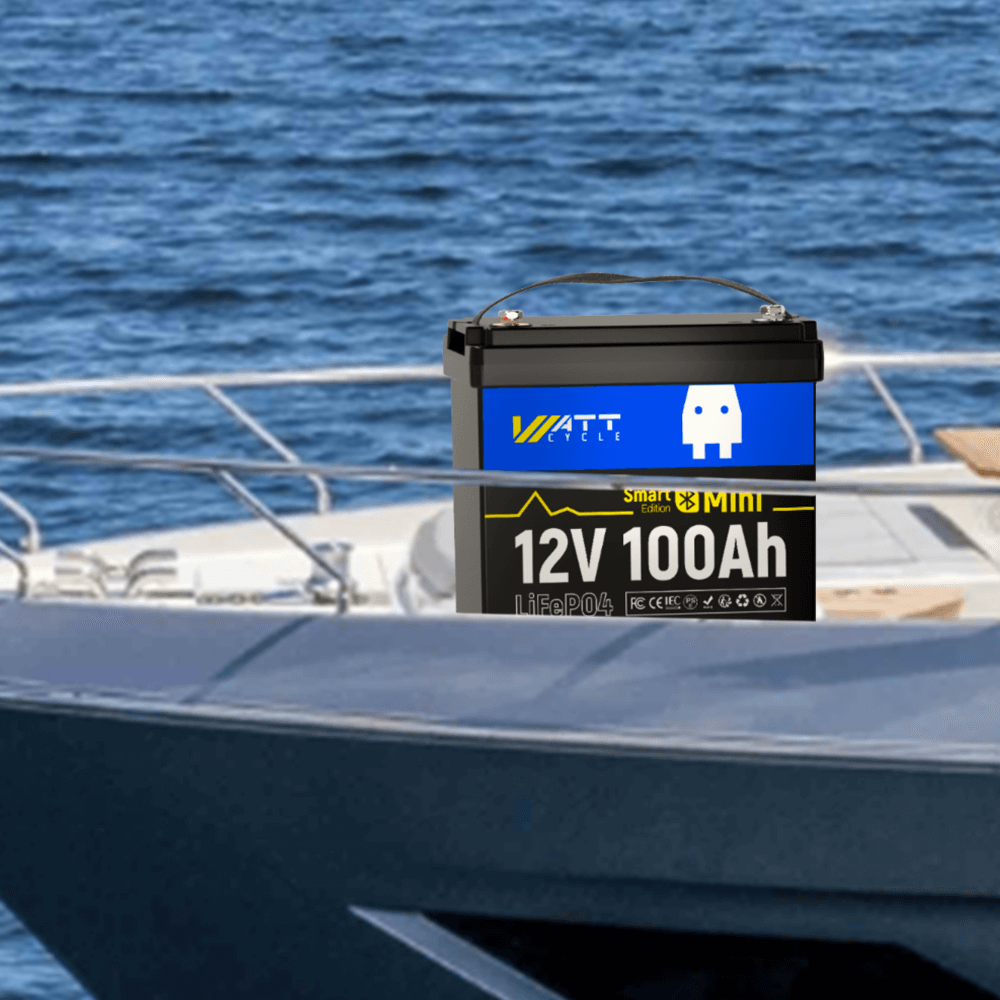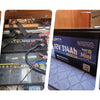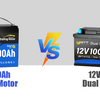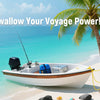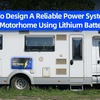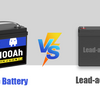Which Is Better? A Comprehensive Comparison between LiFePO4 VS Lead-acid Battery
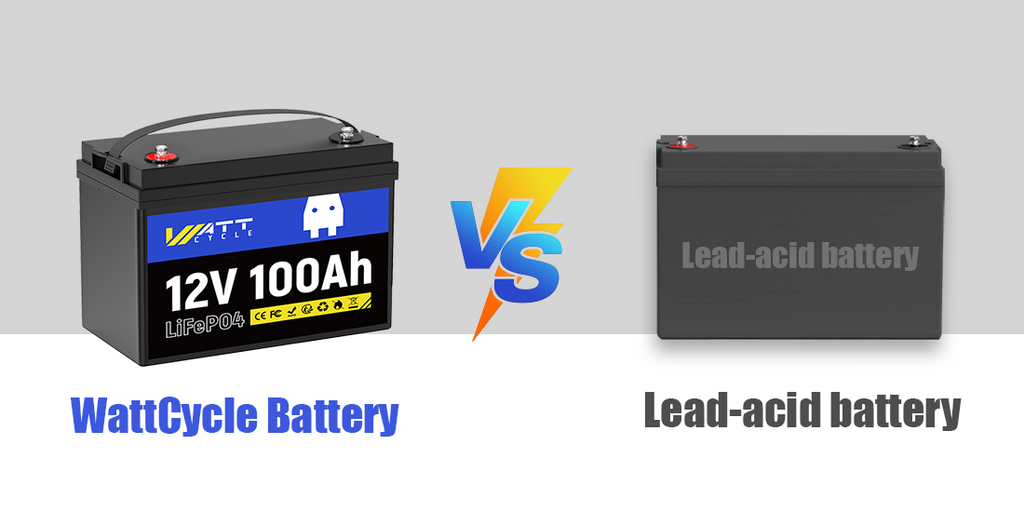
When you need to replace the battery of your motorhome or boat, do you hesitate to choose a LiFePO4 battery or a lead-acid battery? If yes, then this comprehensive comparison blog containing the pros and cons of each battery type will help you make the right decision.
In this comparison guide, we will list out the weight, efficiency, usable energy, adaptability to extreme temperatures, lifespan, smart monitoring, and the impact on the environment of the LiFePO4 battery and the lead-acid battery completely. The whole article will help you figure out the difference between the two batteries and find the best fit for your needs.
Table of Contents
- Weight and Dimension Comparison
- Usable Energy Comparison
- Performance in Cold Weather
- Smart Monitoring with Bluetooth 5.0 Technology
- Durability & Maintenance-Free Operation
- Environmental Responsibility
- Long-Term Value Comparison
- Final Thoughts
Weight and Dimension Comparison
A critical difference between the LiFePO4 battery and the lead-acid battery is weight. Compared to LiFePO4 batteries, traditional lead-acid batteries are significantly heavier, approximately double the weight.
A heavy-weight battery will particularly impact energy implementations such as in motorhomes, boats, and electric scooters. Compared with lightweight lithium batteries, heavy lead-acid batteries will cause motorhomes and boats to be too heavy overall, affecting driving efficiency.
WattCycle's 12V 100Ah Deep Cycle LiFePO4 battery is a perfect solution for people who want to change their heavy lead-acid batteries. It only weighs 10,5 kg, nearly two-thirds lighter than a 12V 100Ah lead-acid battery. The reduced weight makes your motorhome journey lighter.

Usable Energy Comparison
Another advantage of LiFePO4 batteries over lead-acid batteries is that they can be discharged at full capacity. Due to the chemical properties, lead-acid batteries can only be discharged to 50%. For example, a 12V 100Ah lead-acid battery can only discharge 600Wh.
LiFePO4 batteries have the characteristic of 1C discharge, and a WattCycle 12,8V 100Ah LiFePO4 deep cycle battery can discharge 1.280Wh, which lets you not have to worry about a lack of energy while fishing/sailing.
Performance in Cold Weather
Traditional lead-acid batteries typically underperform in low temperatures. As the number of use increases, their capacity and overall efficiency decline, sometimes to the point of failure. This makes them a less reliable choice for use in cold-weather scenarios such as winter motorhome trips, ice fishing excursions, or cold-climate camping.
In contrast, LiFePO4 lithium batteries are engineered to operate efficiently in harsh conditions. Featuring an advanced Battery Management System (BMS), they include smart thermal controls that prevent charging below 0℃ and automatically allow safe recharging once temperatures climb past 5℃. This ensures dependable performance even in frigid environments.
For those who enjoy winter pursuits like ice fishing, having a battery that performs in subzero conditions is critical. WattCycle lithium batteries are engineered to supply stable power in extreme cold, ensuring your gear—such as flashers and other essential tools—keeps running without issue. Thanks to built-in self-heating technology, these batteries regulate their internal temperature to maintain efficiency and reliability, even when the environment is well below freezing. WattCycle 12V 100Ah Dual Purpose Marine battery is equipped with self-heating technology and can automatically heat itself when the temperature drops below 0°C.

One of the major advantages of LiFePO4 technology is the increasingly reduced charging time. Unlike traditional lead-acid batteries that may require 6 to 12 hours to reach a full charge, LiFePO4 batteries can be replenished in as little as 1 to 5 hours, depending on the charging setup. WattCycle batteries support multiple charging options, including dedicated LiFePO4 battery chargers, solar panels with MPPT, generators, and alternators, giving users flexible power solutions in remote or mobile applications. For optimal performance and long-term health, it’s best to use the official WattCycle charger, designed specifically to protect and extend the battery’s service life.

Smart Monitoring with Bluetooth 5.0 Technology
One of the standout benefits of LiFePO4 batteries compared to lead-acid options is integrated Bluetooth capability. Traditional lead-acid units do not support remote monitoring, limiting insight into battery performance. WattCycle’s LiFePO4 batteries, however, feature embedded Bluetooth modules that sync with mobile devices (Android 4.3+ and iOS with Bluetooth 5.0 + GPS), offering real-time diagnostics and operational data.
This smart feature lets you track battery status, remaining charge, and performance alerts directly on your smartphone. Whether you're driving a motorhome, fishing with your marine system, or doing your off-grid setup, this functionality gives you full control and immediate access to critical battery metrics—wherever you are. Find more Bluetooth batteries which meet your needs!

Durability & Maintenance-Free Operation
Compared to the average 2–3 year lifespan of lead-acid batteries, lithium iron phosphate (LiFePO4) units deliver remarkable longevity. WattCycle batteries can handle up to 5,000 complete charge-discharge cycles at full depth of discharge, offering up to 10–15 years of reliable service under normal use.
Unlike lead-acid models that demand frequent upkeep—like topping off fluids and cleaning corrosion—LiFePO4 batteries require no routine maintenance. Each WattCycle battery includes a smart Battery Management System (BMS) that guards against overcharging, deep discharge, high current, and thermal extremes. This built-in protection ensures consistent performance and safety across all applications.
Environmental Responsibility
Environmental considerations are increasingly important in energy storage. Lead-acid batteries contain corrosive and toxic substances, posing disposal challenges and contamination risks when mishandled.
LiFePO4 batteries from WattCycle offer a cleaner alternative. Free from lead and acid, they produce fewer pollutants and have a significantly longer operational life, which reduces waste generation. For eco-conscious users, these batteries represent a more sustainable and responsible power solution.
Long-Term Value Comparison
Though once considered more expensive, the price of LiFePO4 technology has dropped substantially. Today, many lithium deep cycle batteries are competitively priced against their lead-acid counterparts. However, the lower operating costs, better energy efficiency, and superior durability of lithium units make them a smarter investment.
WattCycle backs its LiFePO4 batteries with a 5-year standard warranty, extendable to 7 years upon registration—offering customers added confidence and protection.
Final Thoughts
When selecting between lead-acid and lithium solutions, your choice should reflect your expectations for performance, lifespan, and maintenance. WattCycle's LiFePO4 batteries outperform traditional alternatives in nearly every category—offering reduced weight, consistent energy output, enhanced safety, and minimal upkeep.
If you're planning to upgrade your battery setup for marine use, motorhomes/camping cars, or solar storage, WattCycle's LiFePO4 technology offers dependable power tailored for demanding environments. It's a robust, future-proof option for users who value reliability and long-term efficiency.
-
Posted in
Battery Comparison

